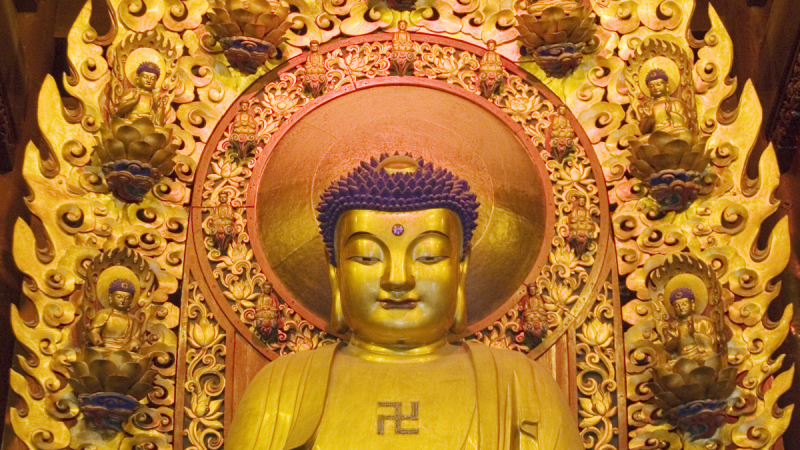Buddhism
Buddhism was created by Siddhartha Gautama ("the Buddha") in India more than 2,500 years ago. Buddhism, with around 470 million adherents, is regarded by experts as one of the main global religions. Historically, its prevalence has been greatest in Southeast and East Asia, yet its impact is currently expanding further in the West. Buddhist concepts and philosophies sometimes coincide with some other religions, too.
Here are some essential Buddhist beliefs:
First of all, Buddhism denies the existence of an ultimate god or divinity. They concentrate on gaining enlightenment, which is a condition of inner calm and enlightenment. When followers achieve this spiritual level, we could say that they have attained "nirvana". The founder of the faith, Buddha, is regarded as a great person, but not a deity - unlike other religions.
Secondly, the term Buddha translates to "enlightened." The route to enlightenment requires morality, meditation, and intelligence. Buddhists often meditate because they think it enlightens the truth within them.
Also,Buddhism has several ideologies and interpretations, making it a progressive and open-minded religion. Some academics do not consider Buddhism to be an established religion, but rather a "way of life" or "spiritual tradition." Buddhism teaches its followers to shun both self-indulgence and self-denial.
The Four Great Truths, the most fundamental teachings of Buddha, are vital to Buddhism comprehension. Buddhists believe in reincarnation and karma (the rules of causes and effects) (the neverending cycle of rebirth).
Last but not least, there is no unique Buddhist symbol; instead, they have a collection of different symbols, including the lotus, the eight-spoked wisdom wheel, the Bodhi tree, and the swastika - which have emerged to symbolize Buddhist teachings.
Followers: 470 million
Founded: 6th century B.C.E







